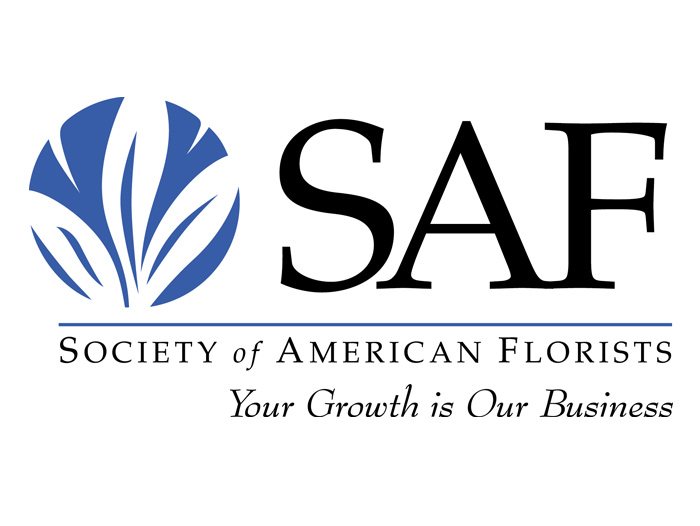Society of American Florists Responds to Sustainability Misinformation in the Media
February 27, 2024 | 6 min to read
In response to misleading opinion pieces from The Washington Post and The New York Times regarding the floral industry's environmental impact, the Society of American Florists (SAF) provided corrective data on sustainability practices, highlighting significant reductions in emissions and chemical use. SAF emphasized eco-friendly methods and worker welfare on Colombian farms, asserting that the industry has made notable strides in environmental sustainability. SAF's outreach seeks to educate the public and rectify misconceptions about flower cultivation.

Alexandria, VA – The Society of American Florists (SAF) swiftly responded to two major media outlets that published misleading opinion pieces about the floral industry’s environmental impact in the lead-up to Valentine’s Day.
The pieces, published in The Washington Post and The New York Times, predominantly focused on South American flower farms and the carbon footprint associated with transporting flowers from Colombia and Ecuador to Miami. Both pieces contained factual errors and largely omitted or mislead the reader regarding the floral industry’s sustainability practices, which have significantly reduced carbon emissions and use of chemicals.
Margaret Renkl, an opinion writer for The New York Times, remarked in her audio piece, “Cultivating unblemished flowers requires liberal applications of insecticides and herbicides,” echoing sentiments from a similar piece published last year to which SAF also responded.
In letters addressed to editors and the authors, SAF provided comprehensive data highlighting the industry’s progress and correcting factual errors, such as the claim in both pieces that flowers are transported in refrigerated jets (atmospheric conditions at 36,000 feet make that unnecessary).
“Cultivating unblemished flowers no longer requires ‘liberal applications of insecticides and herbicides,’ as you stated,” SAF wrote to the Times editors. “Hundreds of flower farms recognized by independent, international certification labels around the globe employ natural ways to control pests and disease, such as biological controls (good bugs eating bad bugs), beneficial fungus and bacteria to enhance soil, or plant extracts that deter bugs.”
SAF’s correspondence included information underscoring the progress the industry has made to cut emissions and chemical use, while prioritizing worker welfare. Key points highlighted by SAF include:
- Emissions from the production and transportation of cut flowers from Colombia to Miami are between 2.16 and 6.44 kg CO2 equivalent emissions per functional unit, significantly lower than most foods, according to a study by the faculty of agronomy at the National University of Colombia, and in collaboration with the Department of Biological and Environmental Sciences at Jorge Tadeo Lozano University in Bogotá.
- A total of 634 metric tons of CO2 equivalent emissions were reduced across 12 floriculture farms in Colombia by using renewable energy.
- Colombian farms have offset an additional 5,314 metric tons of CO2 equivalent emissions in one year through reforestation projects.
- In the past 25 years, farms certified Floraverde Sustainable Flowers have reduced the consumption of highly toxic pesticides by 99.7%, while increasing biological controls by 600% in the past 10 years.
- The number of TEUs (20-foot-equivalent units) of flowers imported by sea to PortMiami increased from 2018 to 2022 by 1,044%, according to the port.
- Florverde farms employ nearly 46,000 workers, the majority of whom are female heads of households. They provide a living wage and follow social standards that include labor rights, education and training and health and safety management. Many farms voluntarily provide on-site schools for employees’ children, wellness breaks, meals, matched savings accounts, laundry services and much more.
Only the Washington Post responded to SAF to explain its use of data. SAF countered with a request that the newspaper add information to provide more context and correct the claim that jets transporting flowers are refrigerated. At the time of this release, neither the Post nor Times had updated the pieces.
The pieces didn’t discourage purchasing flowers altogether. The Post piece recommended purchasing flowers that carry the Certified American Grown label or requesting “sustainable bouquets from a local florist.”
“The entire industry — both domestic and international — has done incredible work to become more environmentally friendly, and that work is not reflected in these opinion pieces, which, frankly, come across as very uninformed,” says SAF CEO Kate Penn. “SAF responded immediately to set the record straight.”
SAF’s outreach to the media is just one aspect of the work it is doing to educate the industry, media and consumers on the progress that’s been made toward environmental and social sustainability.
- In September, SAF called a summit of floral industry leaders to gather ideas on organizing data and talking points.
- SAF hosted an all-industry education session at its annual convention in Phoenix last year, featuring an international panel that discussed progress and challenges.
- SAF’s magazine, Floral Management, annually publishes the Sustainability Spotlight, which showcases the environmental and social sustainability work happening globally.
- SAF also advocates on Capitol Hill for research funding that is used in part to develop and promote sustainable growing practices.
About The Society of American Florists
The Society of American Florists is the association that connects and cultivates a thriving floral community through training, education, marketing resources and advocacy. Our vision: The power of flowers in every life. For more information, visit SAFnow.org.
